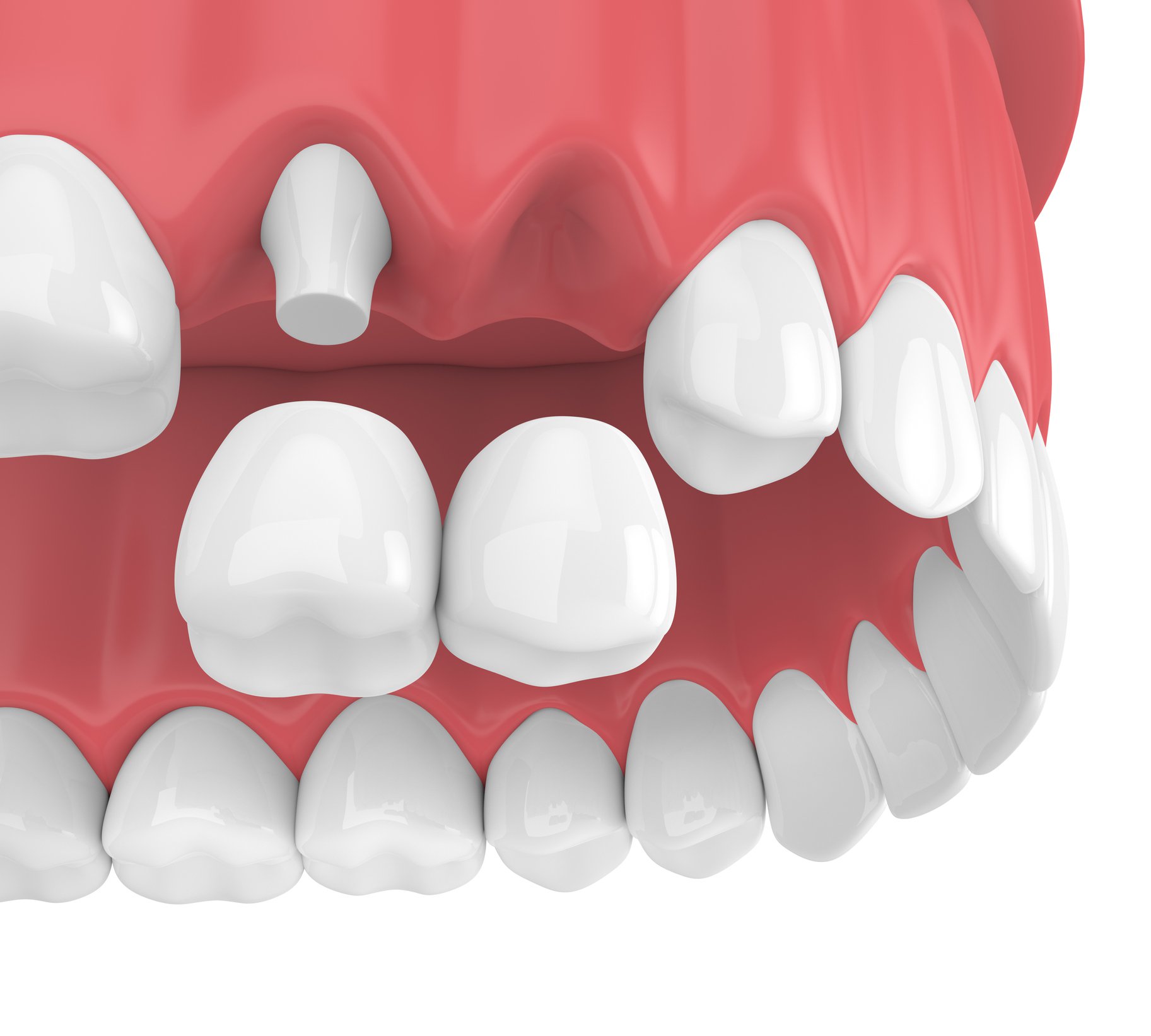When it comes to individual tooth replacement, there’s one major question that everyone asks: What’s the difference between a bridge and an implant? Here are the differences and similarities between these options, how the different types work, and how the treatments could be right for you.
Similarities between dental implants and bridges
There are a few similarities between these. However, the main focus of dental implants and dental bridges is to replace a tooth or teeth with a fixed restoration. A fixed restoration is defined as a replacement device for a tooth or a part of a custom-fit tooth that’s outside of the mouth and permanently attached. This is also a major difference between dentures or partials, which need to be removed from the mouth daily to be cleaned.
Differences between dental implants and bridges
The first difference concerns the teeth that the patient has remaining. With a dental implant, it can be placed nearly anywhere in one of the two dental arches. Of course, this depends only on the bone that’s present, which can be added to if necessary.
A fixed bridge, however, can only be placed where there’s adequate tooth support around the space of the missing tooth. The surrounding teeth will serve as support for the fixed bridge. This happens through the process of grinding down the adjacent tooth or teeth and fixing the bridge with cement to the prepared tooth or teeth.
Types of dental implants and bridges
There are different brands and surface technologies associated with dental implants. However, regardless of the brand or surface technology, most dental implants are endosseous implants, which means into the bone. This implant, which is made of a bioinert material, such as titanium, is placed into the bone. It’s then allowed to heal until final restoration.
How to care for a dental implant versus a bridge
Taking care of your implants is as important as caring for your natural teeth. A dental implant must be brushed, flossed, and have routine professional cleaning appointments, just as your natural teeth do. And although dental implants can’t get cavities, they can still get a disease similar to periodontal disease, or periodontitis. This disease is called peri-implantitis.
A fixed bridge also requires consistent, quality care. Your bridge must still be brushed, flossed, and maintained regularly by a dental professional. Maintaining a bridge by cleaning underneath the bridge can be the most challenging issue. Additional aids, such as water flossers and floss threaders, may need to be used to achieve this level of proper home care. In addition to more tedious home care, bridges can get periodontal disease as well as cavities.
In general, dental implants are more forgiving in the level of home care in relation to a fixed bridge. This level of home care is responsible for the relatively poor long-term survival rate of a fixed bridge to a dental implant.
But regardless of the professional routine maintenance needed for your dental implant or fixed bridge, Dean Dental can help. A healthy dental implant or fixed bridge can restore your confidence, smile, and face shape, and it can also help you bite and chew more evenly.
How long do dental implants and bridges last?
This is also an important question that many patients ask. Once a dental implant is fused to the bone, the survival rate of that implant is the same (if not greater) as your other teeth. Considering that most patients can go their entire lives without losing a tooth if that tooth is properly maintained, a dental implant can survive the longevity of the patient’s life.
However, location of the implant also matters when determining how long the implant will last. For example, implants in the back of the mouth might not last as long as those in the front. This is because implants in the back tend to wear down because of chewing.
For a fixed bridge, the lifetime survival rate has been shown to be around half of that of a natural tooth or dental implant. Depending on good oral hygiene and a good diet, a fixed bridge can last between five and 15 years. However, it might eventually need to be replaced.
Who can place my dental implant?
Any dentist who is properly trained in implant placement, such as those at Dean Dental Solutions, can do the job. A dental specialist is not necessarily needed to place a dental implant. Originally, this was the commonplace thinking in regards to dental implants. But now, most of the current single-unit dental implants and more routine multi-unit cases are being placed by general dentists.
For more information
If you’re missing a tooth or teeth and think that you’re a candidate for dental implant therapy, contact Dean Dental Solutions today at (501) 271-3735. You can also submit this form to request an appointment. We can’t wait to help you look and feel better than ever!


Leave a Reply